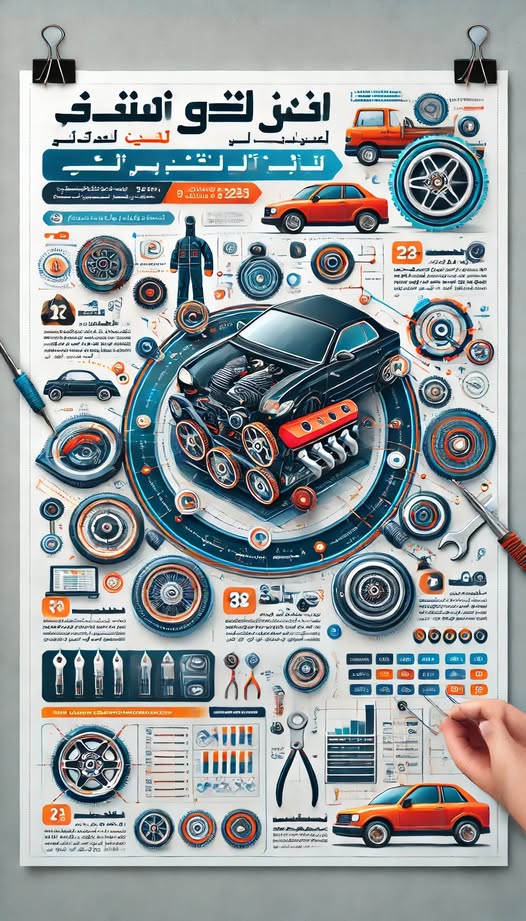
About Course
🧰 Detailed Course Plan for “Engine Maintenance and Repair”
Code: 28002ME-TECH
🧭 Course Objectives
-
Gain a deep understanding of the types, components, and operation principles of engines.
-
Acquire hands-on skills in diagnosing, maintaining, and repairing engine systems.
-
Learn to troubleshoot mechanical, electrical, cooling, and lubrication issues.
📘 Introduction
Engines are the heart of any mechanical system — from vehicles to generators and industrial machinery. This course provides a comprehensive foundation in engine types, internal components, failure modes, and modern diagnostic techniques. The course is built for technicians seeking to enhance their engine servicing capabilities with practical, workshop-based learning.
📄 Course Description
This 6-week intensive course offers both theoretical knowledge and practical workshop training in internal combustion engines (ICE). It focuses on routine maintenance, fault diagnosis, and systematic repairs using modern tools. The course also covers electrical and cooling subsystems, enabling technicians to confidently service various engine types in real-world applications.
🎯 Target Audience
-
Automotive and mechanical technicians handling engines in workshops or field service.
-
Maintenance teams in transport, manufacturing, agriculture, or industrial plants.
-
Technical students with a foundation in mechanics aiming to specialize in engines.
-
Anyone responsible for the upkeep of engine-powered systems.
📚 What You Will Learn
✅ Identify types and functions of engine components.
✅ Differentiate between internal and external combustion engines.
✅ Understand common engine faults and their causes.
✅ Perform diagnostic procedures using modern testing tools.
✅ Service and repair electrical, lubrication, and cooling subsystems.
✅ Interpret and document engine performance and repair reports.
🧰 Materials Included
-
Engine cutaway diagrams and animations.
-
Fault diagnosis charts and checklists.
-
Access to real engines for disassembly and testing.
-
Multimeter and OBD diagnostic tool usage guides.
-
Templates for inspection and service reports.
📋 Requirements / Instructions
-
Prerequisites:
Familiarity with mechanical fundamentals and basic tool usage. -
Attendance:
4 sessions weekly for 6 weeks (24 sessions total). -
Workshop Safety:
PPE is mandatory during lab sessions. -
A final practical exam and written assessment must be completed.
📅 Course Duration
🕒 6 Weeks — 4 Sessions per Week
Balancing theoretical learning and hands-on practice in workshop environments.
🗂️ Course Content Outline
🔹 Week 1: Introduction to Engine Types and Operation
-
Session 1: Internal vs External Combustion Engines
-
Session 2: 2-Stroke vs 4-Stroke Engines
-
Session 3: Diesel vs Petrol Engine Comparison
-
Session 4: Engine Cycle Simulation (Live Demo/Animation)
🔹 Week 2: Engine Components and Functionality
-
Session 5: Pistons, Cylinders, Crankshafts, Valves
-
Session 6: Timing Systems and Camshafts
-
Session 7: Fuel Injection and Air Intake Systems
-
Session 8: Compression, Power, Exhaust Phases Analysis
🔹 Week 3: Common Engine Faults & Their Causes
-
Session 9: Engine Overheating and Loss of Compression
-
Session 10: Oil Leaks, Misfires, Smoke Types
-
Session 11: Fuel System Problems
-
Session 12: Sound and Vibration-Based Diagnosis
🔹 Week 4: Diagnostic Tools and Techniques
-
Session 13: Using Multimeters and Compression Testers
-
Session 14: Interpreting Error Codes (OBD, Manual Reading)
-
Session 15: Engine Analyzer Tools & Sensors
-
Session 16: Practical Diagnostic Exercises
🔹 Week 5: Electrical & Cooling Systems
-
Session 17: Starter Motors and Alternators
-
Session 18: Battery Testing and Wiring Inspection
-
Session 19: Cooling System Components (Radiators, Pumps, Thermostats)
-
Session 20: Testing for Coolant Flow and Blockages
🔹 Week 6: Lubrication System & Final Repairs
-
Session 21: Oil Pump, Filters, and Lubrication Paths
-
Session 22: Oil Quality Testing and Filter Changes
-
Session 23: Full Disassembly and Assembly Workshop
-
Session 24: Final Engine Test & Assessment
🎓 Learning Outcomes
By the end of the course, participants will:
✅ Confidently identify engine parts and their functions.
✅ Perform full diagnostics using both traditional and digital tools.
✅ Repair engine issues related to combustion, cooling, and lubrication.
✅ Document faults, service procedures, and maintain logs.
✅ Apply safe work practices in engine maintenance settings.
Course Content
🧰 Engine Maintenance and Repair
Student Ratings & Reviews



